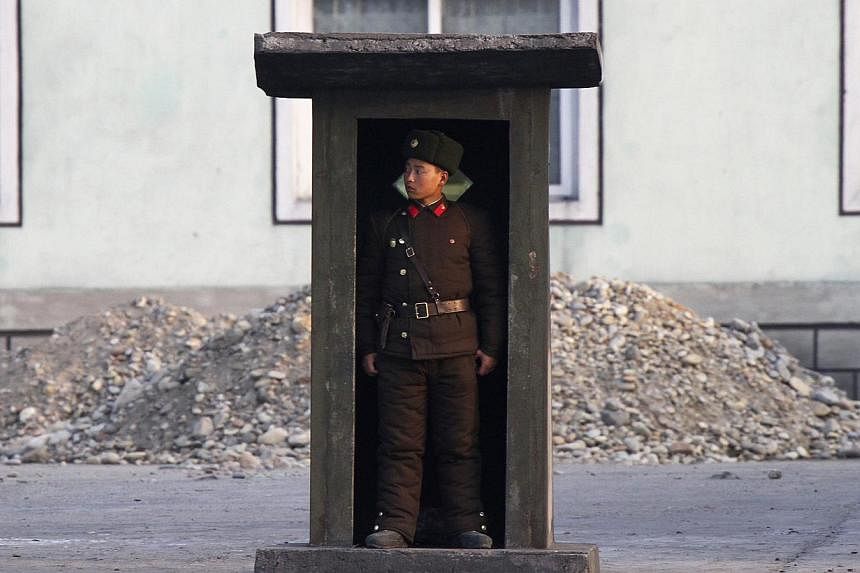SEOUL (AFP) - New satellite imagery suggests North Korea may be firing up a facility for processing weapons-grade plutonium, as Pyongyang threatened on Thursday a fresh nuclear test in response to UN condemnation of its rights record.
The images show steam rising from a re-processing plant at the North's main Yongbyon nuclear complex - a sign consistent with maintenance and testing prior to commencing operations, the US-Korea Institute at Johns Hopkins University said on its closely followed 38 North website.
The facility is used to reprocess spent fuel from the five-megawatt reactor at Yongbyon that is North Korea's main source of weapons grade plutonium.
The latest satellite pictures indicate the reactor has been shut down for 10 weeks - longer than required for routine maintenance.
While warning it was still early to reach a definitive conclusion, the institute said evidence suggested the shutdown may have allowed the removal of "a limited number" of fuel rods for possible re-processing.
The images also showed truck activity near the vehicle door to the building that receives the spent fuel at the reprocessing complex, it said.
The new analysis coincided with fresh threats from Pyongyang to carry out a new underground nuclear test following the UN adoption of a landmark resolution that condemns North Korean rights abuses.
Passed by 111 votes to 19, with 55 abstentions, the resolution also asked the UN Security Council to refer the North Korean leadership to the International Criminal Court (ICC) for possible charges of crimes against humanity.
In a statement carried on Thursday by the North's official KCNA news agency, a foreign ministry spokesman rejected the resolution as a "fraud" and accused the United States of leading efforts to humiliate Pyongyang in front of the international community.
"This aggression by the US is leaving us unable to further refrain from staging a new nuclear test," the spokesman said.
"Our military deterrence will be beefed up limitlessly to guard against US military intervention and attempts for armed invasion," he added.
North Korea has conducted three nuclear tests, most recently in February 2013.
The spokesman's statement echoed remarks by the North's UN representative Sin Son Ho following the adoption of the resolution in New York.
Co-sponsored by more than 60 countries, it drew heavily on the work of a UN inquiry which concluded in a 400-page report released in February that North Korea was committing human rights abuses "without parallel in the contemporary world."
Rights violations by North Korea have been known about for years, but the inquiry's exhaustive report carried the UN stamp of authority and put Pyongyang under unprecedented pressure.
It is especially sensitive to the prospect of leader Kim Jong Un being personally indicted at the ICC, even if he would never willingly appear before the court.
Referral to the ICC would likely be blocked at the UN Security Council by veto-wielding permanent members China and Russia - both of whom voted against the resolution on Tuesday.
As far as the prospects of another nuclear test are concerned, North Korea has been known to "double-down" in response to UN pressure before.
Its last test in 2013 was partly a response to a UN tightening of sanctions following a successful space rocket launch a few months before.
Pyongyang had mothballed the five-megawatt reactor at Yongbyon in 2007 under an aid-for-disarmament accord, but began renovating it in mid-2013.
When operational, the reactor is capable of producing six kilos of plutonium a year - enough for one nuclear bomb, experts say.
Pyongyang is currently believed to have enough plutonium for about six bombs, after using part of its stock for at least two of its three atomic tests.
Experts also believe an expanded gas centrifuge plant at Yongbyon could produce as much as 68 kilograms of weapons-grade uranium a year - enough for three nuclear bombs with a little left over.

